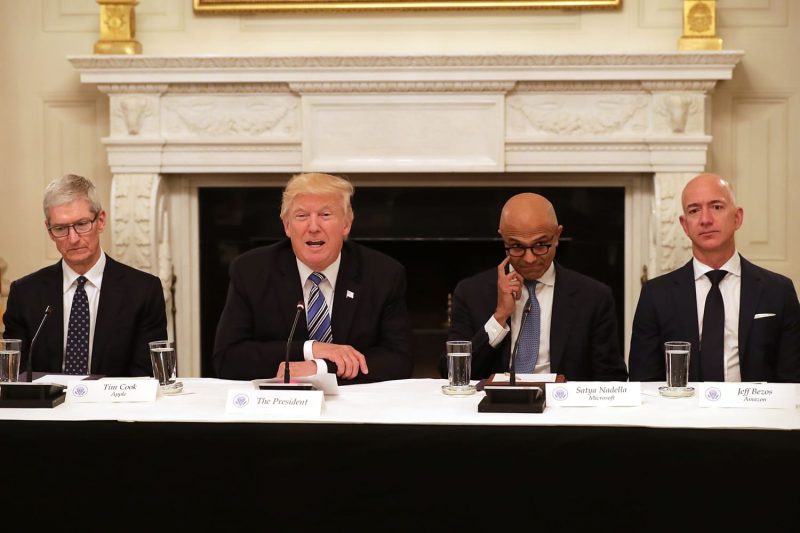**The Trump Presidency: A Catalyst for Deal-Making on Wall Street**
**1. Impact on Market Sentiment**
The election of Donald Trump as President of the United States in 2016 sent shockwaves through Wall Street and global markets. Investors initially perceived the uncertainty surrounding Trump’s policies and rhetoric as a potential risk factor. However, as Trump’s presidency progressed, his pro-business agenda and commitment to deregulation started to resonate positively with investors.
**2. Focus on Deal-Making**
One of the defining characteristics of the Trump presidency has been its emphasis on deal-making. Trump, a former real estate mogul, brought his negotiation skills to the Oval Office, aiming to leverage them in international relations and trade agreements. This focus on deal-making has had a significant impact on Wall Street, where investors have welcomed Trump’s business-friendly approach.
**3. Deregulation and Market Optimism**
Trump’s administration enacted several deregulatory measures, particularly in the financial sector, which were received positively by Wall Street. The rollback of certain regulations, such as the Dodd-Frank Act, fueled optimism among investors, who viewed these moves as conducive to deal-making and economic growth.
**4. Mergers and Acquisitions Surge**
The perceived deal-making environment under the Trump administration led to a surge in mergers and acquisitions activity on Wall Street. Companies sought to capitalize on the favorable regulatory climate and low-interest rates to pursue strategic partnerships and acquisitions. The increase in deal activity reflected both confidence in the market and a willingness to engage in expansionary strategies.
**5. Global Trade Negotiations**
Trump’s confrontational approach to international trade negotiations, particularly with China, created uncertainty in financial markets. While some investors welcomed Trump’s efforts to address trade imbalances, others expressed concerns about the potential impact on global economic stability. The unpredictability of Trump’s negotiating style added a layer of complexity for investors navigating the markets.
**6. Pandemic Challenges**
The outbreak of the COVID-19 pandemic in 2020 presented an unprecedented challenge to the global economy and financial markets. The pandemic disrupted deal-making activity as businesses grappled with the economic fallout and uncertainty brought about by the crisis. The Trump administration faced criticism for its handling of the pandemic, which further exacerbated market volatility and dampened investor confidence.
**7. Looking Ahead**
As the Trump presidency draws to a close, Wall Street reflects on its impact on deal-making and market dynamics. While Trump’s pro-business stance and deregulatory agenda were generally well-received by investors, the volatility and uncertainty that characterized his tenure also posed challenges for market participants. The incoming Biden administration will likely bring a shift in policy priorities, which could influence deal-making strategies and market sentiment moving forward.
In conclusion, the Trump presidency has been a catalyst for deal-making on Wall Street, with a focus on deregulation and pro-business policies shaping market dynamics. However, the era of Trump’s presidency also brought volatility and uncertainty, underscoring the complex interplay between political leadership and financial markets. As investors navigate the evolving landscape, adaptability and cautious optimism will be key in driving deal-making activity in the post-Trump era.

